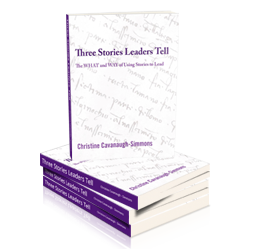People I Love: Shirley Chisholm

Two stories shape our lives: the stories we tell about ourselves, and the master social narrative that defines our relationships and roles within society. A defining moment for people of color and women comes when they recognize they either are not included in the dominant social narrative or are belittled and disempowered by it. When people in marginalized groups offer what’s known as a “counter narrative,” they open up new worlds of possibility for themselves and others in their group. I’ve always been most inspired by those with the courage to bring forth a counter narrative that creates a new social narrative into which I could step. This series of stories features such people. I hope you find them as inspiring as I have. For more on the importance of the stories we tell—and believe—about ourselves, and the power we can claim when we re-author those stories and offer counter narratives, please see The Power of Counter Narrative.
Shirley Chisholm
Educator, Politician
What exactly are we to make of her?
Born in Brooklyn, the oldest of the four children to Charles St. Hill, a factory worker from Guyana, and Ruby Seale St. Hill, a seamstress from Barbados. A clipped British accent picked up when she lived for part of her childhood with her maternal grandparents in Barbados, attending British schools while her parents fought to establish a foothold in the Bedford-Stuyvesant neighborhood during the Depression. A lifetime educator who at the age of forty decided to enter politics. A presence that belied her build—a mountain of a woman in a schoolteacher’s frame.
Shirley Anita St. Hill Chisholm seemed to materialize out of nowhere to say things that needed to be said at a time when they needed saying.
After serving as a nursery school teacher, director of two daycare centers, and as education consultant for New York City’s daycare system, Chisholm in 1964 was elected to the New York state legislature, just the second African-American woman to serve in the statehouse in Albany. Just four years later, she ran for a U.S. House seat representing Brooklyn, fighting against not just a dominant social narrative that excluded her because of the color of her skin, but against the dominant narrative of African-American men who diminished her because of her gender.
In so many ways, Chisholm and her Republican-Liberal opponent in the general election, James Farmer, represented two sides of the same coin. Both opposed the Vietnam War. They had similar stands on education, employment, and housing issues. But Farmer—a key figure in the civil rights movement who helped organize the Freedom Riders and co-founded the Congress for Racial Equality—campaigned against Chisholm by belittling her gender.
He complained that “women have been in the driver’s seat” of black life for too long, and that Brooklyn needed “a man’s voice in Washington.” He dismissed Chisholm as a “little schoolteacher.”
As she was to do throughout her lengthy political career, Chisholm turned Farmer’s critique into a positive, rewriting the narrative. “There were Negro men in office here before… but they didn’t deliver,” she said. “I’m here because of the vacuum.”
“Shirley is the perfect example of embodied leadership,” said Christine Cavanaugh-Simmons, president of CCS Consulting Inc. “She had a message that was not only a counter narrative, but unassailable. She spoke truth and created cracks in the master narrative.”
Campaigning under the slogan “Unbought and Unbossed,” Chisholm traveled throughout neighborhoods in the district in a sound truck, bellowing: “Ladies and gentlemen, this is fighting Shirley Chisholm coming through.”
Chisholm won the election, becoming the first African-American congresswoman in U.S. history.
She had no intention of quietly taking a seat at the back of the chamber. “I intend to focus on the nation’s problems,” she said. In her first speech on the House floor, Chisholm lambasted the nation’s involvement in Vietnam and vowed to oppose defense appropriation bills until the country’s priorities “have been turned right-side up again.”
In 1972, Chisholm sought the Democratic presidential nomination, making her the first African-American woman to run for president. “I ran because somebody had to do it first,” she later said.
“When I think of her, I think of the courage,” Cavanaugh-Simmons said. “She was a revolutionary, a matriarch, and a pest. Revolutionaries always bring a counter narrative, and to do that they need great courage.”
Though she lost the nomination to George McGovern, Chisholm picked up ten percent of the delegates. In 1974, a Gallup Poll listed Chisholm among the ten most-admired women in America—more popular than Coretta Scott King or Jacqueline Kennedy Onassis.
“We must refuse to accept the old, the traditional roles and stereotypes.”
Although her outspoken ways didn’t win her many friends in Congress, she was a founding member of the Congressional Black Caucus and the Congressional Women’s Caucus. She served in Congress until 1983, when she retired to spend more time with her second husband, Arthur Hardwick Jr.
She was also frustrated, however, by the persistent racism she sensed among both whites and blacks. She was frequently criticized by blacks for her willingness to negotiate and seek compromise with white politicians.
“We still have to engage in compromise, the highest of all arts,” she said. “Blacks can’t do things on their own, nor can whites. When you have black racists and white racists, it is very difficult to build bridges between communities.”
Throughout her career, she spoke out forcefully on woman’s issues. And she recognized that battle would be every bit as difficult as the fight for racial equality.
“Women in this country must become revolutionaries,” she said. “We must refuse to accept the old, the traditional roles and stereotypes.” She added: “But we must also remember that we will be breaking with tradition, and so we must prepare ourselves educationally, economically, and psychologically in order that we will be able to accept and bear with the sanctions that society will immediately impose upon us.”
Chisholm didn’t fade from the scene. After she left Congress, she served as co-founder of the National Political Congress of Black Women. She stumped for Jesse Jackson when he ran for president in 1984 and 1988. She also taught and wrote until her death on January 1, 2005.
True to the woman who knew she was offering a counter narrative to 1960s America when she first ran for Congress, Chisholm knew exactly how she wanted to be remembered.
“I want history to remember me not just as the first black woman to be elected to Congress, not as the first black woman to have made a bid for the presidency of the United States, but as a black woman who lived in the twentieth century and dared to be herself,” she said.
The Book

Help leaders unlock the power of stories to inspire, engage and guide teams and entire organizations
My Story is My Path
Resources for all those called to leadership who understand the power of words and stories to shape their futures from one of the nation’s preeminent narrative coaches, Christine Cavanaugh-Simmons of CCS Consulting Inc.